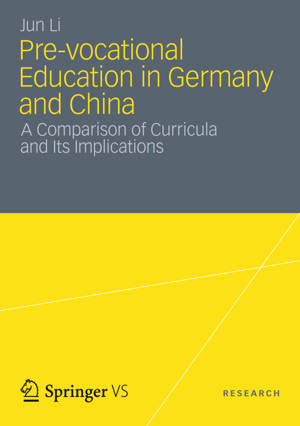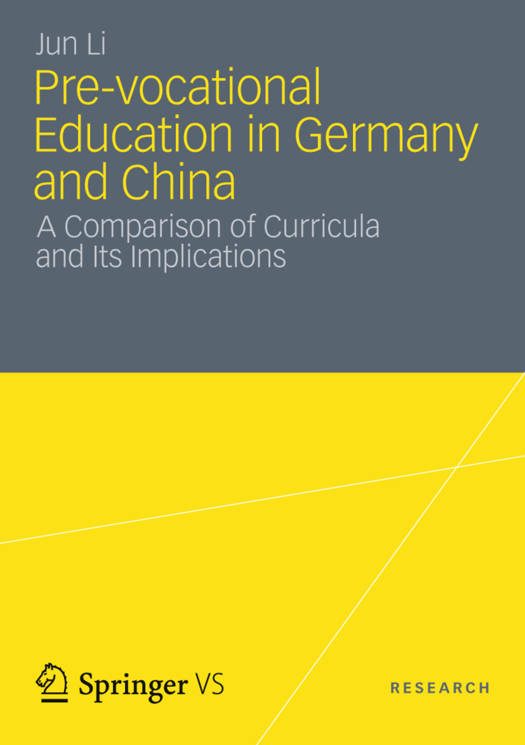
- Retrait gratuit dans votre magasin Club
- 7.000.000 titres dans notre catalogue
- Payer en toute sécurité
- Toujours un magasin près de chez vous
- Retrait gratuit dans votre magasin Club
- 7.000.0000 titres dans notre catalogue
- Payer en toute sécurité
- Toujours un magasin près de chez vous
Description
The school-to-work transition has been an important topic in the fields of education and sociology research in the past few years. Pre-vocational education, which takes place during lower-secondary school and aims to facilitate the school-to-work transition, is of critical significance in introducing the participants to the world of work and/or in preparing them for entry into further vocational education programs.
With a strong comparative nature, Jun Li presents this systematic investigation of the pre-vocational education in Germany and China and analyzes their curricula of pre-vocational education. By combining the methods of content analysis and teacher interview, the author offers an in-depth perspective into the realms of pre-vocational education and reveals the divergences between the prescribed curriculum and the enacted curriculum. The findings also relate closely to an intensively discussed issue in the sociology of education in the past few years, namely the issueof knowledge and its status, function and forms in the school education today.
Spécifications
Parties prenantes
- Auteur(s) :
- Editeur:
Contenu
- Nombre de pages :
- 178
- Langue:
- Anglais
- Collection :
Caractéristiques
- EAN:
- 9783531194394
- Date de parution :
- 01-12-12
- Format:
- Livre broché
- Format numérique:
- Trade paperback (VS)
- Dimensions :
- 148 mm x 210 mm
- Poids :
- 240 g

Les avis
Nous publions uniquement les avis qui respectent les conditions requises. Consultez nos conditions pour les avis.






